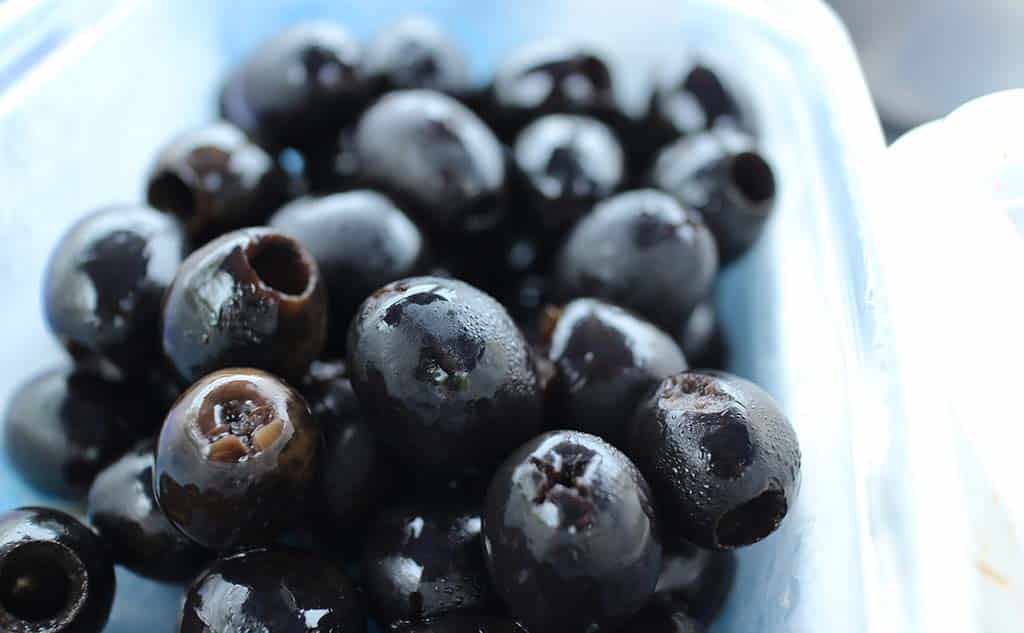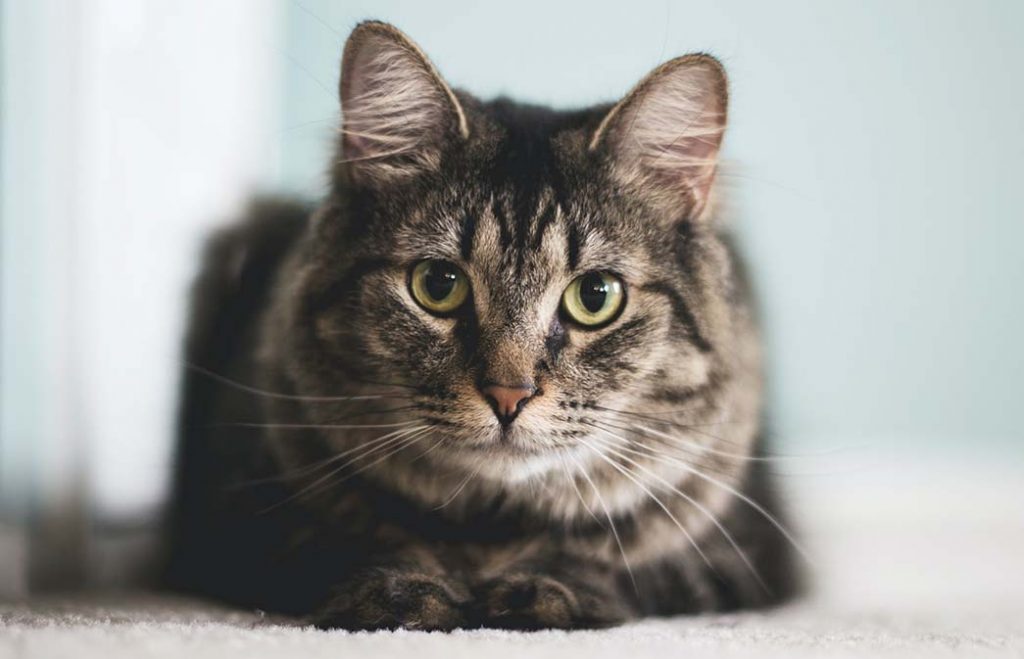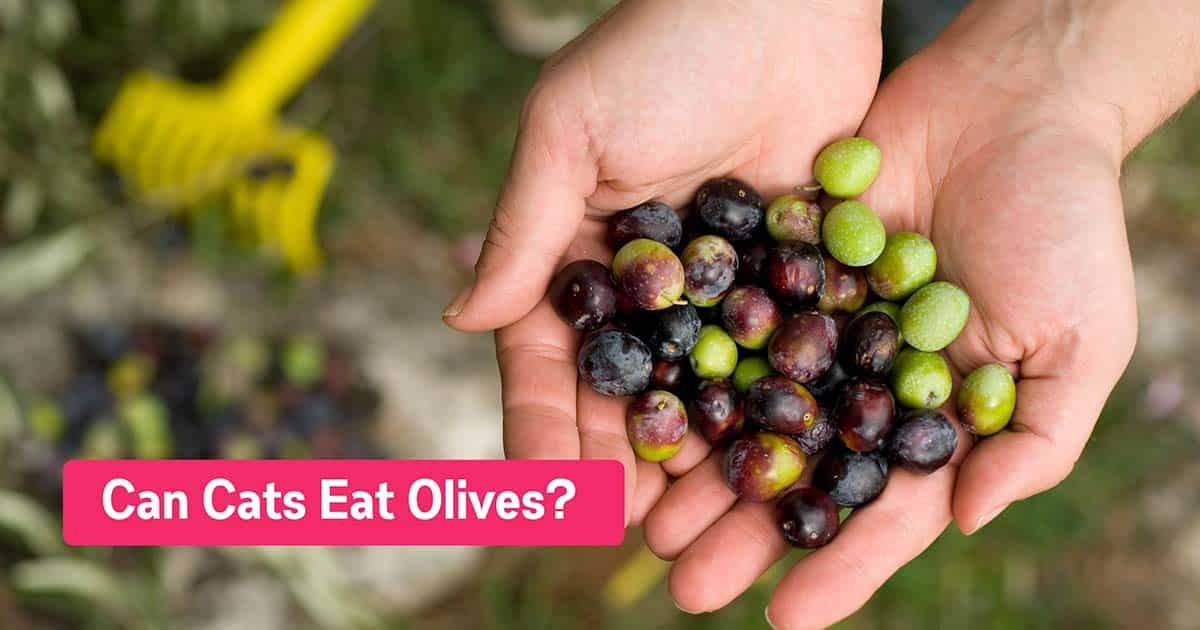Olives are a great source of vitamins and nutrients that could help give us a balanced diet. But while they’re perfectly healthy and safe for humans, one of the most common questions we get is this: can cats eat olives?
This fruit is rich in vitamin E, calcium, and iron, which are essential to keeping our bones and skin healthy. Olives are also high in dietary fiber and low in cholesterol, so you know it’s perfectly safe for consumption. This makes them a staple in salads and as pizza toppings.
In this article, we’ll dig deep into whether or not olives are safe for your furry friend’s consumption. Read on to know more about olives, and how they can affect your cat’s diet.
Can cats eat olives?
Fortunately, the answer to this question can be answered in the affirmative. There is nothing in olives that can be considered as toxic to your cat, so it’s perfectly safe to feed them with olives once in a while.
However, bear in mind that this data is based on fresh and natural olives, not the ones that you can buy in cans. The latter is already filled with preservatives or are covered in brine, and that can be harmful to your precious fur baby.
Additionally, while olives are not toxic to cats, feeding them with olives must be done moderately. It is not advised to feed your cats with high amounts of olives at any given day. After all, too much of something – even if it’s good – can be harmful to you.
Cats and Olives: Benefits
For human beings, it’s undeniable that we can get a lot of health benefits from eating olives as a human food. After all, it possesses nutrients that are anti-inflammatory, antioxidant, antimicrobial, and antihypertensive, to name a few. It’s also rich in vitamin E, iron, calcium, and copper – and these are known for giving us healthy bones, skin, and nerves.
Olives are also rich in vitamin C, which is known to strengthen our immune system. However, while we need a healthy dose of vitamin C per day, this may not be the same for our beloved cats.
While vitamin C isn’t necessarily harmful to them, their bodies are already capable of producing this vitamin. This means that they don’t need the vitamin C content found in olives to help boost their immune system.
But with that said, your cat can still benefit from olives through the following ways:
Anti-inflammatory
Olive is known to contain oleocanthal, which is known for its anti-inflammatory properties that’s similar to ibuprofen. This means that it effectively reduces the painful feeling that is often associated with conditions such as arthritis. As a result, olives can be a great treat for aging cats.
Antioxidants
Olives contain hydroxytyrosol and oleuropein, which are phenolic compounds known for their antioxidant properties. These compounds help reduce the risk of certain cardiovascular diseases and some types of cancer.
Prevents heart disease
Olive – more particularly, olive oil – is known for containing compounds that prevent bad cholesterol from oxidation, thereby reducing the risk for heart attacks and similar heart-related diseases. They’re also known for improving the flow of your blood in your system, thereby reducing the risk of developing blood clots.
Prevents obesity
As previously stated, olive reduces the effect of bad cholesterol in the body, which is also related to obesity. In this case, it’s also safe to say that feeding your cats with olives from time to time greatly reduces the development of obesity.
Reduces risk for cancer
Studies reveal that cancer often results from the oxidative damage caused by free radicals. Fortunately, olives and olive oil are rich in antioxidant properties that can prevent the damaging oxidative process from taking place.
Some studies also reveal that oleic acid, a compound that’s abundant in olives and olive oil, is capable of fighting the growth and further spread of cancer cells. This means that olives not only reduce the risk for cancer, but it also helps prevent its further spread at its onset.
Antibacterial
And finally, olives contain a variety of nutrients and minerals that act as an antibacterial compound. Studies reveal that olives are capable of fighting off eight strains of the bacterium Helicobacter pylori, which is known for causing stomach ulcers.
The most interesting fact here is that three strains of the Helicobacter pylori are capable of resisting most antibiotics – but not the antibacterial compounds found in olives.
Cats and Olives: Risks
While eating olives pose no life-threatening harm to your cat, it can still possess certain risks. This is especially true if you overdo the feeding, or if you accidentally give them processed olives that have been soaked in brine.
Here are some of the common risks you might encounter in case you feed your cat with olives.
Sodium Poisoning
Olives contain a healthy dose of sodium, but if you feed your cat with too many olives on a given day, he runs the bigger risk of developing sodium poisoning.
The most common symptom of sodium poisoning is vomiting. Thus, when you notice your cat vomiting after eating a lot of olives, it’s best to rush him to the veterinarian as soon as possible.
Other extreme symptoms of sodium poisoning that you have to keep an eye on are excessive diarrhea, tremor, and seizures. Don’t hesitate to call your veterinarian once you notice the onset of these symptoms.
High salt content
As previously mentioned, some olives are sold in bottles or cans that have been preserved using preservatives or brine. This preserved variety contains high salt contents which can be quite harmful to your cat.
Some of the harmful effects of preserved olives include kidney failure and high blood pressure due to its high salt content. Thus, we strongly advise against feeding your cat with preserved or processed olives.
Additionally, even if you try to wash the olives before feeding them to your cats, some of the brine content may have already been absorbed by the olive – which is why it has already been preserved.
Acidity
Olives are also known for their high acidic content. As a result, this can cause an upset stomach, or greatly affect the normal pH levels inside his body. This can even cause more serious problems such as urinary tract infections. Thus, make sure sure that you’re only feeding your cat with the right amount of olives per week.
Choking Hazard
While olives may seem small and harmless for humans, their size and texture pose as a choking hazard for our smaller furry friends. As such, it is best to serve them with sliced olives to prevent them from choking.
Cats and Green Olives
At this point, we have already established that olives are not toxic to your cats. With that said, it’s perfectly safe for you to feed your cat with green olives, especially as a rare treat.
Green olives are rich in the compounds isoprenoids and pimentos, which cats find highly attractive. As such, it wouldn’t be a problem for you to give your cat his supplementary dose of green olives.
Can Cats Eat Black Olives?

Just like green olives, black olives are also non-toxic to our feline friends.
It is also revealed that some variety of black olives contain less sodium content than green olives. And with our previous discussion on the risks of sodium poisoning in cats, it’s safe to say that black olives are the healthier choice as a treat for your cat.
However, take note that some black olives are also sold in bottles that are also filled with brine. In this case, always check the label if it contains high amounts of salt or sodium before feeding it to your cat.
Cats and Kalamata Olives
Kalamata olives are known for being larger than the average green or black olives. They are also easily identifiable by their purple hues, so it’s very easy to spot one in the market or while out buying groceries.
Like all other olives, kalamata olives are also rich in antioxidants and anti-inflammatory compounds that are perfectly healthy for your cat. With that said, it’s perfectly safe to feed your cat with kalamata olives – just make sure that the feeding is done within limits.
Can cats have olive oil?
We have previously stated that olive oil is rich in a variety of vitamins, minerals, nutrients, and plant-based compounds that can help reduce the risk of certain diseases and cancer. With this in mind, there’s no denying that olive oil is perfectly safe for your cats.

Olive oil also contains a high amount of oleocanthal, which is an effective anti-inflammatory compound that helps reduce pain. It works quite similarly to ibuprofen, and the fact that it is all-natural is a bonus.
With that said, it’s safe to add a little bit of olive oil into your cat’s meal once in a while to supplement his diet. However, make sure that it does not exceed one tablespoon. Otherwise, this might upset your cat’s stomach and could cause him to experience diarrhea.
Why Do cat loves olives?
We’re all familiar with how fresh olives taste like and smell of olives. Their bitter taste is not at all appealing. But if you’ve been observant with how your cat devours olives, you might notice that they enjoy eating them.
The answer to this lies in the fact that olives – or more particularly, the green olive variety – contains isoprenoids that are similar to nepetalactone, a compound that’s present in catnip. As a result, green olives give cats that euphoric feeling that keeps them wanting more. Thus, even with the bitter taste of olives, cats simply find them irresistible.
Olives as a Treat for your Cat
At this point, you already know that olives are not exactly toxic to your cat. But while they’re safe for their ingestion, it doesn’t bring much to the table, because cats can have a balanced diet even without eating olives every day.
Nevertheless, because of the many benefits that they can enjoy from olives, it is advised to give olives to your cat as a treat. This will help give them the right amount of antioxidants and anti-inflammatory compounds that could help prevent the development of certain diseases.
But as previously mentioned, make sure that these olives are sliced into small pieces so that they won’t pose as a choking hazard for your cat.
How Frequent Should I Give Olives to My Cat?

As previously mentioned, it would be better off for your cats to enjoy olives as a treat instead of including it regularly in his meals. Doing so assures you that he is only getting the supplementary nutrients from olives instead of relying solely on them for his bodily functions – think of it as a food supplement for cats.
With that said, it is advised that you should feed your cat with olives for up to three times a week, but only as a treat. This assures you that your cat will get the most of the nutrients found in olives, while still avoiding any potential risk from developing – especially when taken in large doses.
My Cat Ate Olive Pit: Should I be Concerned?
As much as olives are non-toxic to your feline friends, olive pits are similarly non-toxic. With that said, it’s perfectly safe for your cat to ingest an olive pit.
This is useful information, especially if you’re about to panic from your cat’s accidental ingestion.
In most instances, these pits merely pass on to your cat’s digestive tract and exit as an ordinary stool. The only risk that we can think of is that it can potentially become a choking hazard. In this case, we strongly advise that you seek medical attention immediately.
Conclusion
Bear in mind that while it’s perfectly safe for your cats to eat fresh olives, this must still be done in moderation. More importantly, it must be the fresh – not the ones you can buy in bottles or cans that usually come with harmful preservatives.
Knowing this confirms that you can add a few slices of olive into your cat’s diet. This also gives you peace of mind, knowing that nothing wrong will happen to your cat in case he eats the slice of olive that fell from your salad.

Hello and welcome to The Ideal Cat!
We are some passionate cat owners from different professions. We love our cats and have a lot of experience in how to care for our pets. We are incredibly excited to share our knowledge, experience, and research with you. So you can take good care of your loving cat. We will answer most of the common questions about owning cats, taking care of them, etc. If you have any question contact with us. Thanks for visiting! Enjoy the content.
